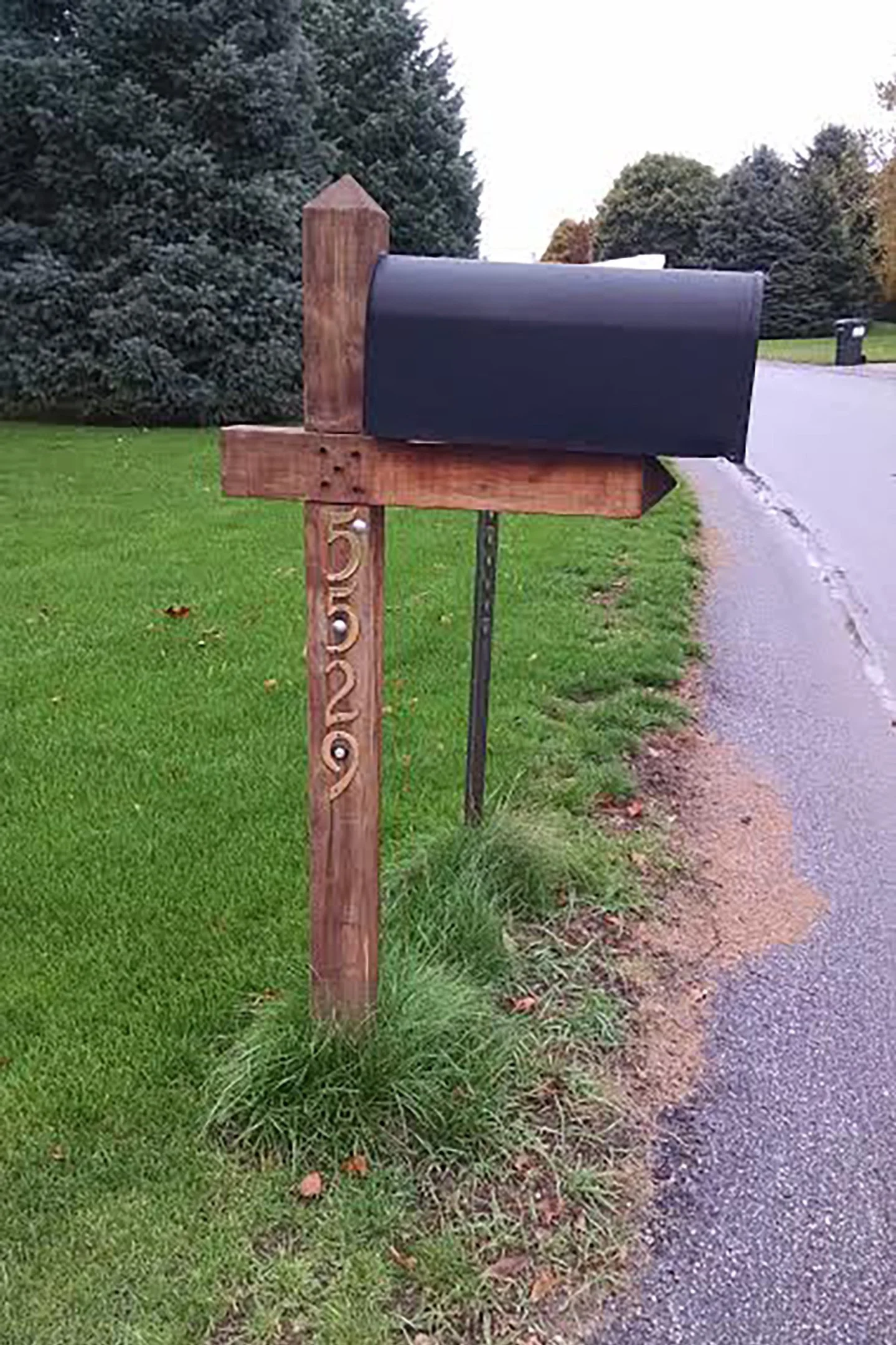Help Your Helpers Help You
Certain scenes from my days of emergency service never fade. One was the night in the 1970s when we were called on a man having a possible heart attack. We were unable to get through the front doors of his brand-new apartment building for more than 15 minutes. By the time we reached him on whatever high floor he was on, he was in cardiac arrest. Our resuscitation efforts were unsuccessful. I have always wondered whether a more timely arrival would have made a difference.
Thus, one of my pet peeves has always been avoidable access issues, particularly during an emergency response. We cannot help if we cannot get to you.
Lousy at a distance...
I need you to prepare ahead of time for your worst day. If nothing else, please—today! right now!— go out and assess how easily emergency crews would know that they have arrived at your address. Will people unfamiliar with your place be easily able to see your street number from a distance, night or day, rain or snow? From both directions? Whether you are in a residential building or at work in a commercial setting, is there an easy-to-spot number on the building? Make arrival easy and arrival will be quicker. Just sayin’.
Fix this! Please?
If you live in a convoluted warren of streets (typical of housing developments) or a jumble of apartment buildings within a huge complex, please understand that we find jigsaw puzzles fun, too—just not on your time, especially if your time is becoming more limited by the moment in a life-threatening situation. Create a plan for shepherding your emergency responders to your side, especially if your location situation is complicated.
Sorry for whoever is at #5150...
In an emergency, you will almost inevitably feel rattled. That is okay! It is normal. The definition of “emergency” is a situation that is beyond your ability to manage it. It is why you only need to remember three simple numbers: 911. Nine-one-one. Not nine-eleven (there is no eleven on the phone pad). Some people have been stymied by this. Teach your children well.
Not so helpful...
When the emergency telecommunication specialist (“dispatcher”) answers your call, try to be prepared with:
your callback number. This is the first thing needed, in case you get cut off.
the location of the incident. Speak slowly and clearly. If you are on a roadway, wait to call until you can determine a usable address or location. (“We’re on I-96" is not helpful.) Drive ahead to the nearest mile marker, and also determine your direction of travel. (“The crash is on the shoulder of westbound I-96 between mile markers 160 and 161." That is helpful.)
Your dispatcher is your link to help.
Other access-assist hints:
Post your complete street address (including the city/town) in a location such as the kitchen, where someone with a cell phone can find it quickly. Note your phone numbers (cell and landline, if you still have one) there, too.
Be patient with all the questions. There will be quite a few. They want to send the right response.
Be ready to follow directions. There may be some first aid or safety-related pre-arrival instructions.
Know that, oftentimes, emergency responders come in multiple waves, so try to have someone stay outside to guide later-arriving helpers in as needed.
Do anything you can to draw your helpers in quickly. Porch lights flashing, garage door open with lights on, someone out front with a flashlight, whatever it takes to draw their attention.
Remember your own personal safety. Don’t play in traffic (leave that to the professionals!).
If you can, promote calm among others waiting with you by taking a deep breath, minimizing drama, and helping as best you can.
Reflective numbers are wonderful!
This street number is easy to see!
After I began writing this blog, the urgency of access again slammed into me when I got news about a young woman who was once on a competitive team with me. She was only 39 years old, but when cardiac issues beset her, guess what happened? Emergency crews were delayed at the gate of her “secure” gated community. They could not get in. They were unable to arrive in time to revive her. I learned all this at her funeral. So, something that was heartbreaking in the 1970s is still happening. If you live in a gated community or high-security building, remember that sometimes it’s not only about keeping people out. Sometimes, it’s about getting people in to help you in your fearsome moments.
Are you ready with a workable plan?
Also a very good job!










